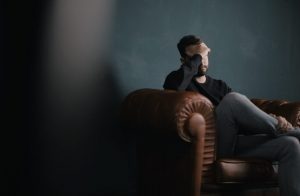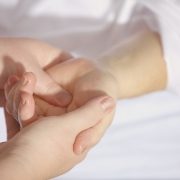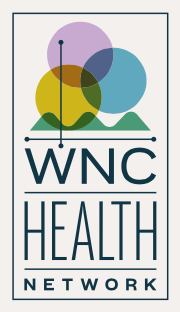Beth Booth, originally from the coast of NC, became health director of Graham County, NC in November, 2017. Since landing in her leadership role with Graham County Department of Public Health, she has led the agency in bringing back primary care and in streamlining services, working creatively to leverage auxiliary and support staff in the face of a rural nursing shortage.

Image by Nik Shuliahin
The health department is also strengthening their work in the community and has reestablished a previously dormant substance use coalition. In addition to Beth and Amber Williams, Health Educator at the health department, the coalition includes resource officers, principals, preachers, nonprofit leaders, the leader of Celebrate Recovery (a local faith-based recovery program), and the director of a local thrift store who is a minister and does work with substance use.
As Beth was getting the coalition back in action, she determined that she wanted to conduct a listening session (or focus group), with people in recovery to both help inform the community health assessment process, and to also avoid taking on issues not viewed as high priority by those most affected by substance abuse.
Beth and Amber worked with WNC Health Network before the listening session. “Support from WNC Health Network was crucial,” says Beth. “We attended their WNC Healthy Impact training on how to convene community listening sessions. Then they worked with us

Photo of Graham County by Patrick Williams, Ecocline Photography
one-on-one to develop the script and give us pointers, including how to pay attention to body language of people in the group, how to ask people to speak up without being obtrusive, and how to sit quietly and not overpower the group or sway them in any direction.”
Beth had built a relationship over the previous year with a team leader at Celebrate Recovery, and he was able to schedule an evening for Beth and Amber to come to meet with participants in the program. Beth and Amber arrived early so that they could participate in the sermon and group dinner prior to their session. “I didn’t just walk in during the middle of the sermon and disturb everything. Staying for the whole event is crucial for building mutual trust and respect,” says Beth.
Beth and Amber started their listening session by letting participants know that the session would be recorded, and how they were planning to use the information. When the session started they had six participants – by the time it ended they had about 10 in attendance.
“I told the participants – you are the experts in this. I want to know what you’ve experienced, how you got where you are, and how you got yourself out,” says Beth. “At one point when our tape recorder stopped running the participants let us know that it had stopped and waited to continue talking until the recorder was running again. Oftentimes public health is afraid they’re going to offend someone by asking targeted questions, but it’s not a sensitive issue to them, it’s their life. They want you to hear what’s coming out of their mouth and to give a darn about what they think.”
The listening session participants gave Beth and Amber feedback on where to locate syringe drop boxes, and how to best structure youth prevention programming. They also spoke to the challenges posed by stigma: “The group told me that there are plenty of people who have trouble getting help because people don’t think they’re worth the help.” Eventually, the team leader had to come in and stop the lively session because it was past 9 pm.
Because of feedback and insights gained from the listening session, the health department is now working on reopening the domestic violence shelter that shut down in 2017. They are exploring what can be done to expand transitional housing, and to increase prevention for youth, including resiliency education in the schools. They are looking at starting a support group for adults in recovery that is not faith-based, as well a support group for children located in the schools.
The experience – in addition to holding listening sessions with other segments of the community – has driven home for Beth that there are still too many people who don’t realize what a huge problem substance misuse poses for their friends, family, and neighbors. Beth says: “That has been an awakening for me – I took it for granted that people knew we have a problem in our county, but when I present the data and the stories I’ve heard you can hear the murmur going through the room… they’re shocked. It has started coming down to community-wide education and bringing everyone to realize, yes – there’s a problem in the county. It might not touch you, but it exists.”
Beth Booth’s Thoughts on Successful Listening Sessions:
- Be upfront when you go in to the listening session; know that participants are going to ask you what you plan to do with the information and that you will be held accountable for how you respond.
- Don’t make assumptions; sit and listen with an open mind.
- Don’t think that participants are going to be close-lipped. If you build relationships and mutual respect they will respond to your questions openly and generously.
- Be honest about what you’re looking for: ‘I’m here for you and your opinion.’
- Let the group know that they are the experts and that you’re looking to learn from them.
- Take the time to sit through the entire session or event (provided that you have been invited into that space). Be respectful of the participants’ time and the time you’re taking from them.
- Take the information given to you by the participants and understand that their story is valid data, as if you had asked a scientist.
- When you acquire information from community members you must hear it and you must do something with it – you’re responsible for it.
- Understand that the participants have just as much passion about the issue as public health does – probably even more passion.
If you are interested in learning how WNC Health Network could support you in conducting community listening sessions of your own, contact Emily Kujawa, Project Manager & Improvement Specialist (emily.kujawa@wnchn.org).


